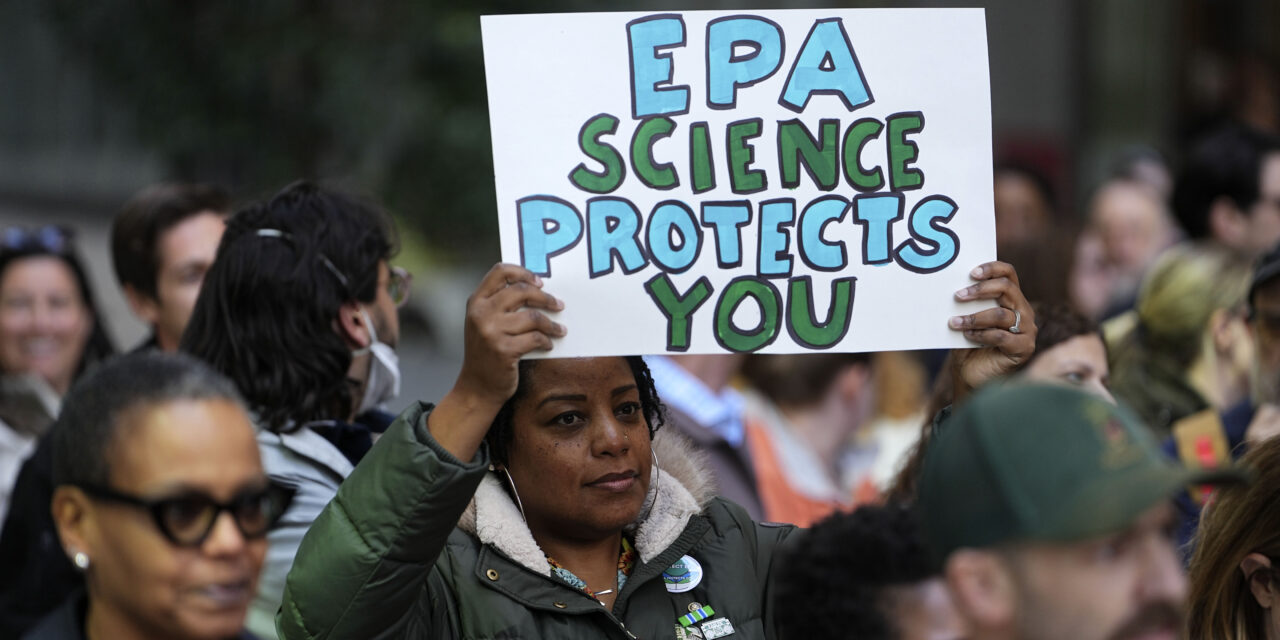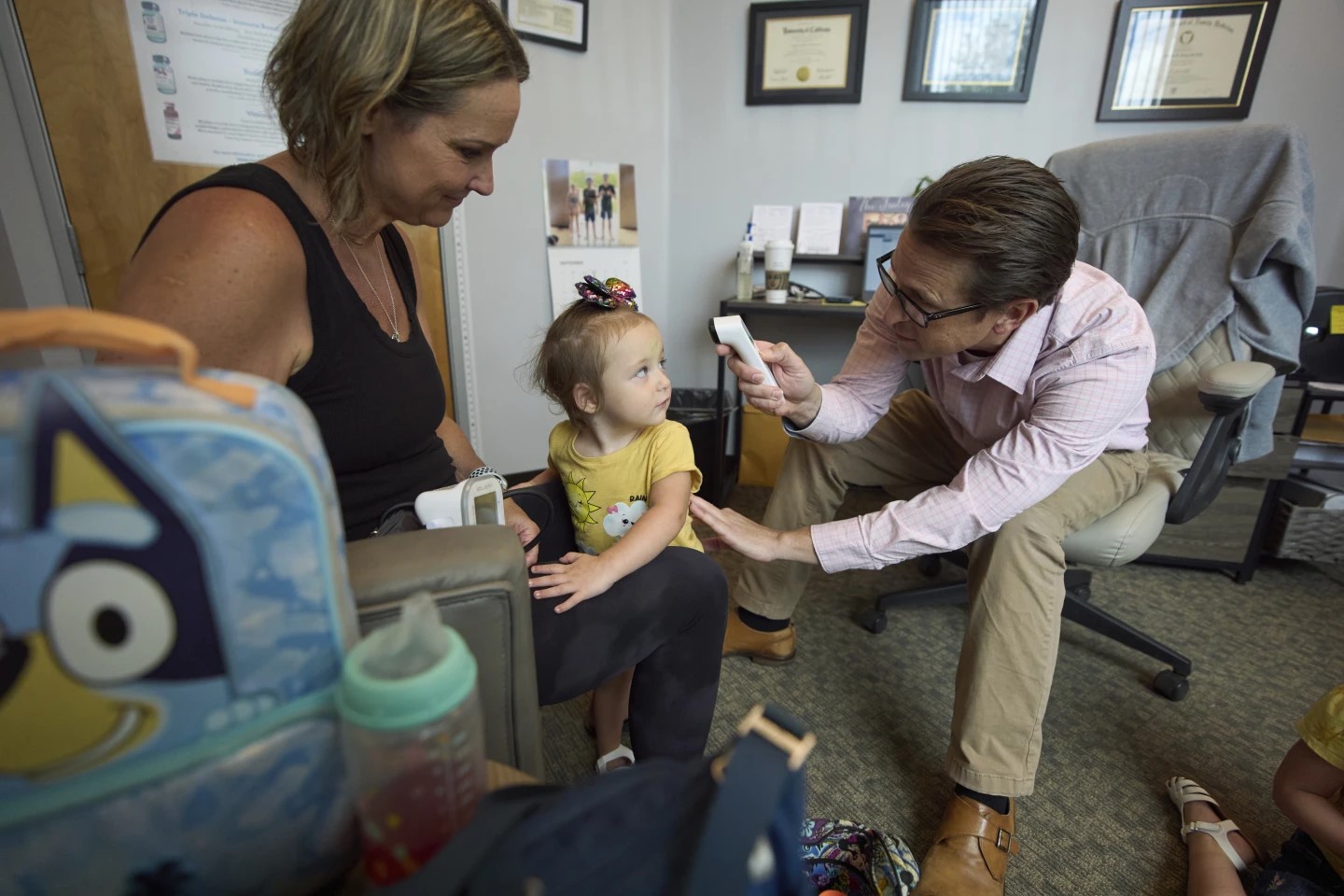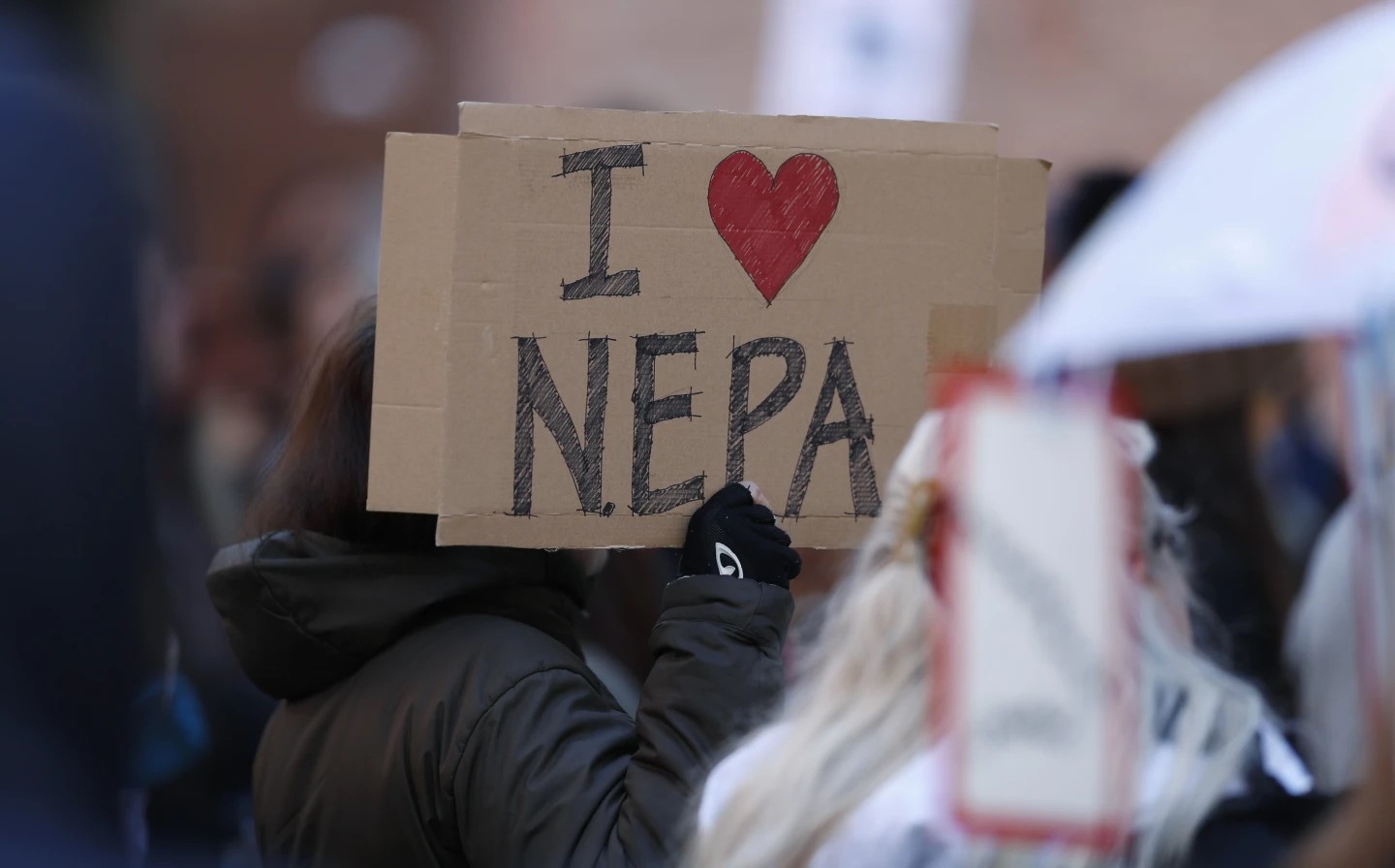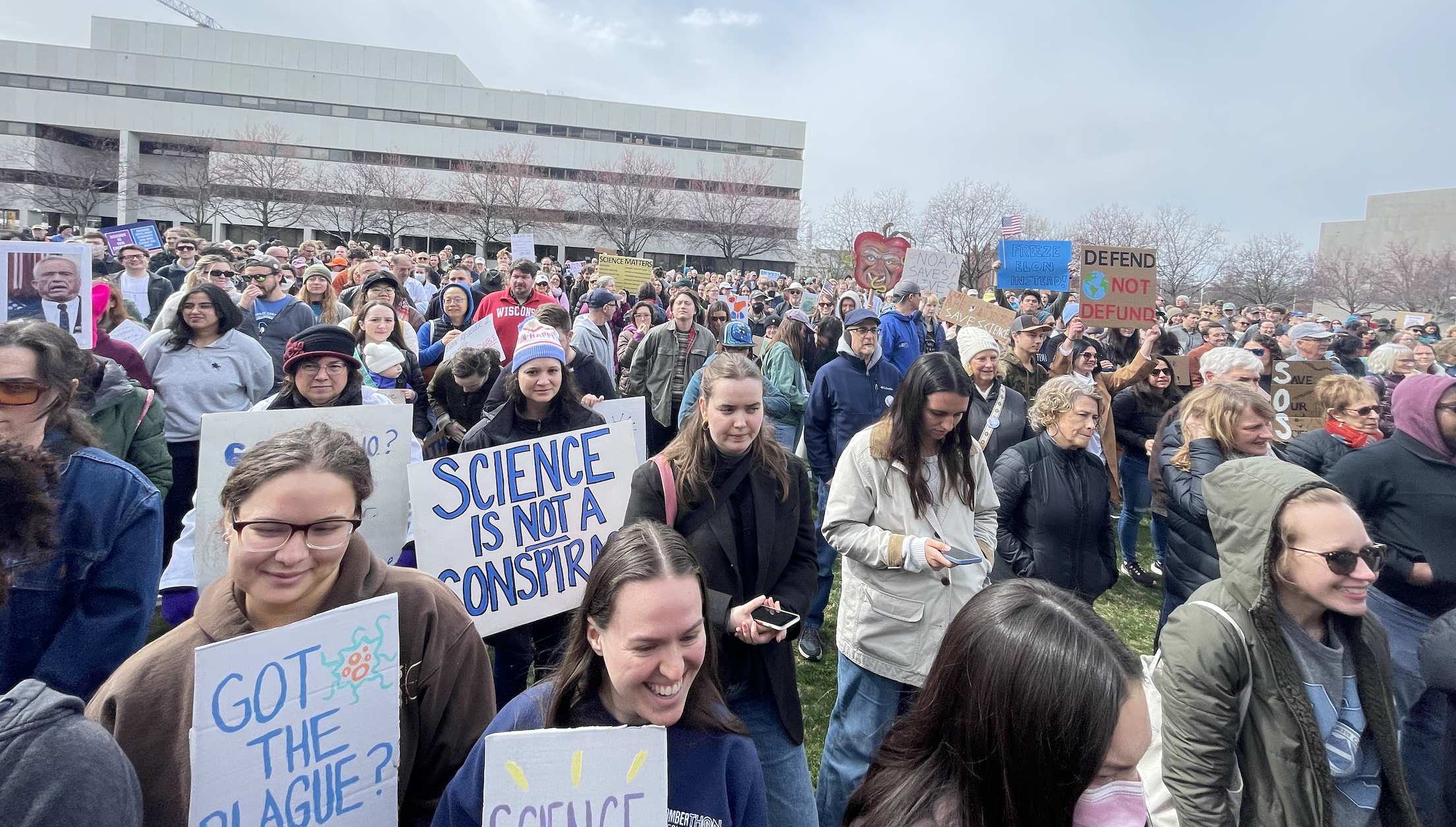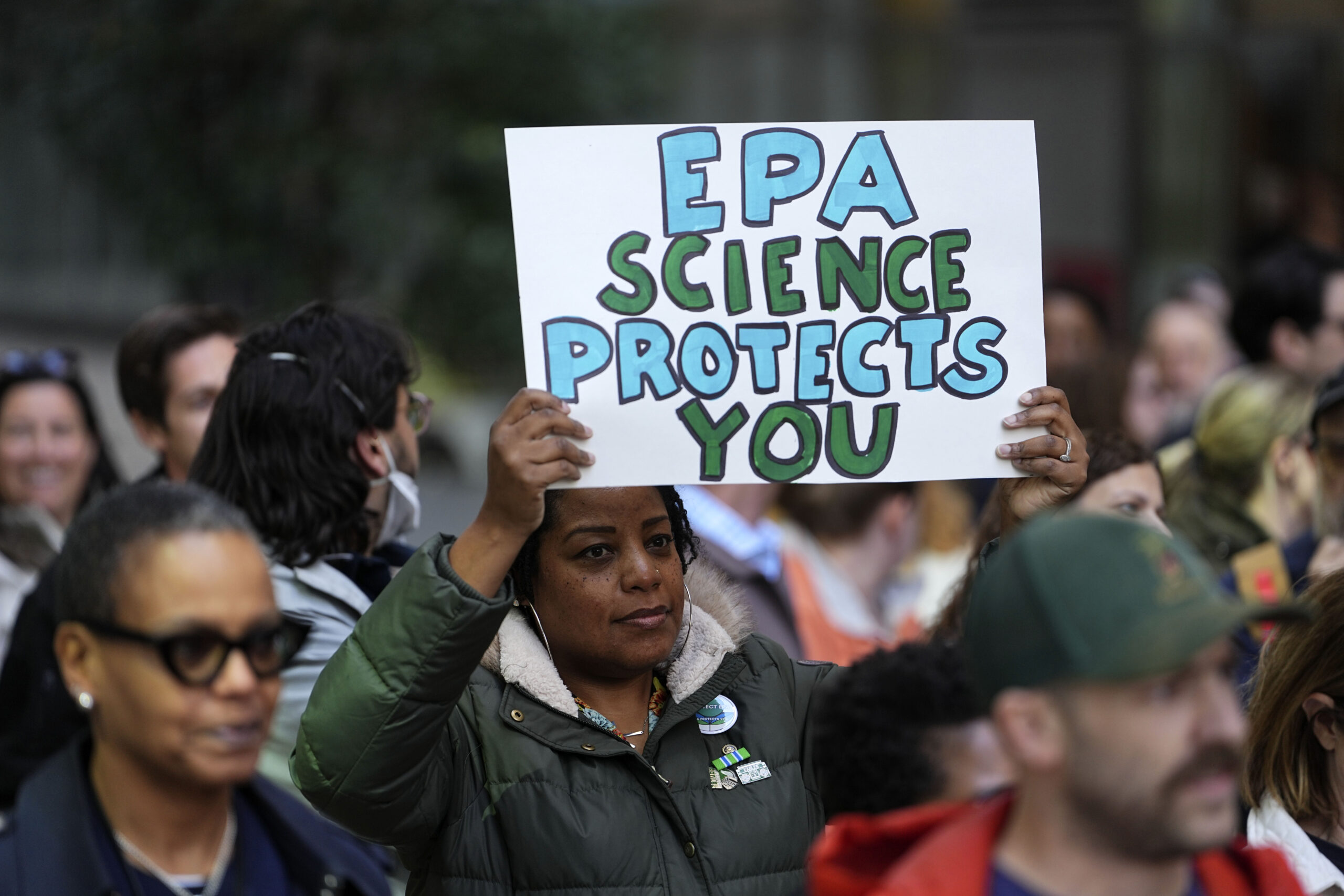Despite knowing that her days are likely numbered at the Environmental Protection Agency’s Office of Research and Development in Research Triangle Park, epidemiologist Kristen Rappazzo will be doing her job till the very end.
“We are all still sort of grimly working, but definitely there is a pall over everyone at the office,” she said. “Sometimes people are like, ‘Well, why are we even bothering to start new things?’ I’m like, ‘I can’t sit around waiting to be fired, so I’m going to keep researching, and even if it means starting a new study that will never get finished, right now that’s my job, so I’m going to keep doing it.’”
The EPA office at RTP is likely to fall victim to mass cuts as the Department of Government Efficiency, an initiative of the President Donald Trump administration headed by Elon Musk, has continued its efforts to fire thousands of government workers across the country.
Rappazzo said one of the main ways employees are handling the seeming inevitability of losing their jobs is by trying to set things up for possible replacements if their positions eventually get re-filled in the future.
“There is definitely this general feeling of it being hard to focus, but I think everyone wants to do their work,” she said. “A lot of what’s happening now is like, ‘Okay, how do we package this such that if someone else were to pick it up, they could do that? How do we make sure things are documented and accessible to the people who might come after?’ So, sort of a grim knuckling down, is how I’d call it.”
She also made clear that the effects of gutting the EPA will not just be felt by the employees, but eventually by all Americans. This is especially true when it comes to disaster relief during events like wildfires and hurricanes, both of which are likely to continue growing stronger and more frequent as the effects of climate change persist.
“Public health and government, when they’re working well, you don’t hear anything about them. You may not even know they’re there working in the background,” she said. “It’s only when they’re broken that you start to be aware. There will be a lack of information and response when it’s needed, and they will be like, ‘Well, who is responding to this? Who is responsible for finding out how we stop it?’ And the answer will be, ‘Oh, all the people that were fired.’”
Rappazzo said in addition to the unprecedented scale of these firings, the lack of procedure and clarity is making everything even more difficult. For example, she said the management at the RTP office learned of the plan to cut research and development funding from a news article.
“It’s so chaotic because they are not following any process and they’re not talking to anyone,” she said. “None of the leadership has been told any of these plans. Which is like, oh, so the person who is literally your actual boss is not talking to you at all.”
Recent retiree Jeff Ryan said that in more than four decades with the EPA, he has never seen anything like this, or even close. He retired from his job as a research scientist at the RTP office in January, before Trump’s inauguration, but remains connected with people still there.
“Morale is at an all-time low,” he said. “I mean, people are crying at their desks. It hurts. I cannot tell you how many people are heartbroken.”
He said the situation is even more disheartening when considering the genuine dedication of the people he used to work with.
“The strongest point that I wanted to make is that the people in the Office of Research and Development are there not because it’s a job. It’s because they believe in the EPA mission,” he said. “They have a calling; they see it as a duty. They care. And that’s what makes the EPA so unique, and you’re eliminating that.”
Phil Dickerson, who worked at the EPA Office of Air Quality Planning and Standards before retiring in March, also emphasized the sincerity and importance of EPA employees. He expressed frustration over the insulting rhetoric coming from the Trump administration, saying such language has a significant effect on the mentality of the people who are targeted by it.
“The folks that support it are just saying, ‘They’re all useless,’ and that’s just not what I experienced. We know we’re not, we’re doing a lot of really useful stuff,” he said. “Most of the people I work with are really proud of what they do. So, constantly hearing that you’re not wanted, not needed, it’s doing some damage.”
He said job security used to be a well-known benefit to working for the federal government, and the damage being done could be irreversible since government jobs have become so much more volatile.
“It’s going to be hundreds of thousands of federal employees that are gone, and I think that could take a while to come back from,” he said. “So I personally am pretty pessimistic about the future of the federal government, just because, will they be able to recover from that massive loss of people?”
Holly Wilson, president of the American Federation of Government Employees (AFGE) labor union chapter representing EPA RTP employees, said it’s urgent that the public learns more about the effects of these cuts on their lives.
“They think we are just doing regulations to do regulations, or our scientists are just behind a microscope or wearing safety glasses. No, we are out there in the community impacting your daily life,” she said. “The fact that you can walk outside without an oxygen mask or see clear blue skies, the fact that you can drink water, means we are doing our job.”
Wilson said executive orders targeting the power of unions are also posing a dangerous threat, and that the rights of unions must be protected too.
“There have been some executive orders that are intended to hamper the union and the services that they provide to staff, but we’re not going to slow down,” she said. “Unions are enshrined in law and they serve a good purpose.”
She detailed some of the ways the local AFGE chapter has been trying to support EPA RTP employees who are bracing to be fired, including establishing a hotline and website for displaced federal employees. They’ve worked with national labor unions as well as the governor’s office to provide such resources.
Ultimately, as much as she and other people try to help, Wilson said pessimism is basically inescapable right now.
“We’re trying to be as supportive as we can, we’re trying to seek resources where we can, we’re trying to provide emotional support, but it is very challenging,” she said. “Make no mistake about it: it is a very challenging time right now for the federal workforce and for us here in the Research Triangle Park area.”
Featured photo via AP Photo/Matt Rourke.
Chapelboro.com does not charge subscription fees, and you can directly support our efforts in local journalism here. Want more of what you see on Chapelboro? Let us bring free local news and community information to you by signing up for our newsletter.

